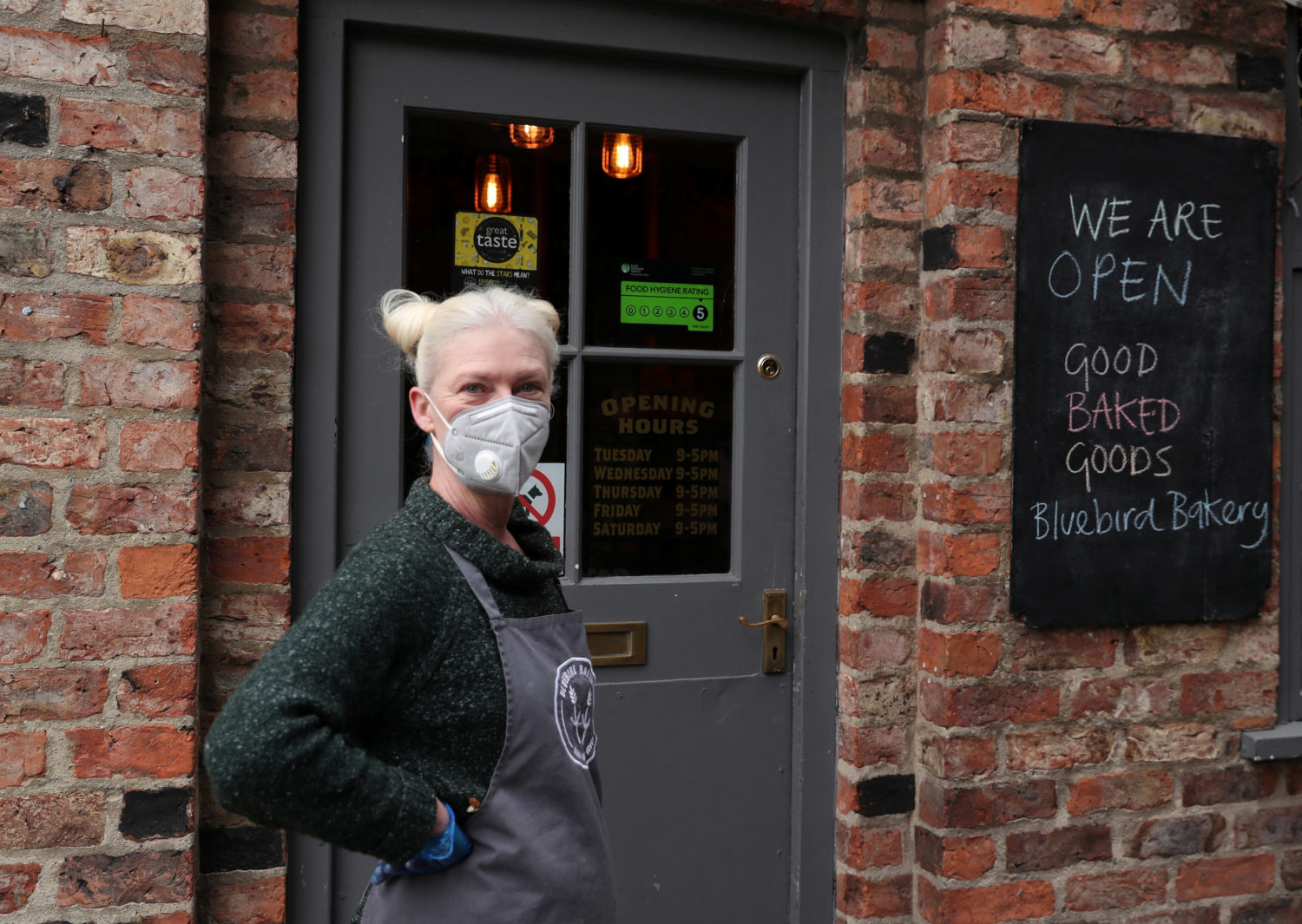
By Andy Bruce and Alistair Smout
LONDON (Reuters) – Prime Minister Boris Johnson continues to make progress, four days after being admitted to hospital with COVID-19, but he remains in intensive care as officials signalled there was no end in sight to an unprecedented national lockdown.
Johnson, 55, was admitted to St Thomas’ Hospital on Sunday evening with a persistent high temperature and cough, and was rushed to intensive care on Monday where he has since spent three nights receiving treatment.
Ministers have said he has been sitting up in bed and talking to medical staff.
“He’s still in intensive care but he continues to make positive steps forward and he’s in good spirits,” Foreign Secretary Dominic Raab said at a news conference in Downing Street.
Raab, who is deputising for Johnson during the most stringent shutdown in Britain’s peacetime history, said he had not spoken to the prime minister since he was admitted to intensive care.
“I think it’s important, particularly while he’s in intensive care, to let him focus on the recovery. We in the government have got this covered,” Raab told a news conference.
Earlier on Thursday, a Downing Street spokesman said Johnson had received oxygen support, but was not put on a ventilator.
The UK death toll in hospitals from coronavirus now stands at 7,978, a rise of 881 on the day but a smaller increase than the 938 seen in Wednesday’s data.
With Johnson absent and the death toll still mounting, the British government is wrestling with two major issues – how to finance a vast increase in state spending to support the shuttered economy, and when to start easing lockdown measures.
With the economy facing potentially the worst hit since World War Two, the government said it had expanded its overdraft facility with the Bank of England.
The central bank has agreed temporarily to finance government borrowing in response to COVID-19 if funds cannot immediately be raised from debt markets, reviving a measure last widely used during the 2008 financial crisis.
The BoE said it was a short-term measure and both it and government said any borrowing from the Ways and Means facility – effectively the government’s overdraft with the Bank – would be repaid by the end of the year.
The government has made pledges costing tens of billions of pounds to support businesses and workers hit by the virus. On Thursday, the government said an additional 1.2 million claims for welfare payments had been filed since March 16.
NO END TO LOCKDOWN
Raab said the peak of the virus outbreak had yet to be reached and that the government would not be able to say more about the duration of the lockdown until late next week, once experts have had chance to analyse data on how well it is working. It was introduced last month.
“The measures will have to stay in place until we’ve got the evidence that clearly shows we’ve moved beyond the peak,” he said.
While Johnson’s condition was said to be improving, it was unclear how long he might be incapacitated, with some political commentators saying there was a power vacuum in his absence.
Raab said on Thursday he had the power to make “necessary decisions” in the prime minister’s absence and that government will continue to follow the strategy set out by Johnson. He said cabinet could take decisions collectively.
The United Kingdom is entering what scientists say is the deadliest phase of the outbreak, with deaths expected to continue to rise over the Easter weekend.
But in a sign the shutdown measures were working, health officials have said the number of coronavirus infections and hospital admissions had begun to show signs of flattening.
“We’ve always been clear that it would take a period of time to see the impact of those measures in the statistics that we publish every day,” Johnson’s spokesman said.
“We’ve always said that if the scientific advice suggests further steps are needed we’d be prepared to take them, but for now our focus is on ensuring the steps we already have in place are properly enforced.”
Police said they would be taking tougher action to do just that before the four-day Easter holiday weekend because many people were continuing to ignore the ban on social gatherings.
(Additional reporting by Kate Holton; Writing by Michael Holden and Guy Faulconbridge; Editing by Angus MacSwan and Stephen Addison)






